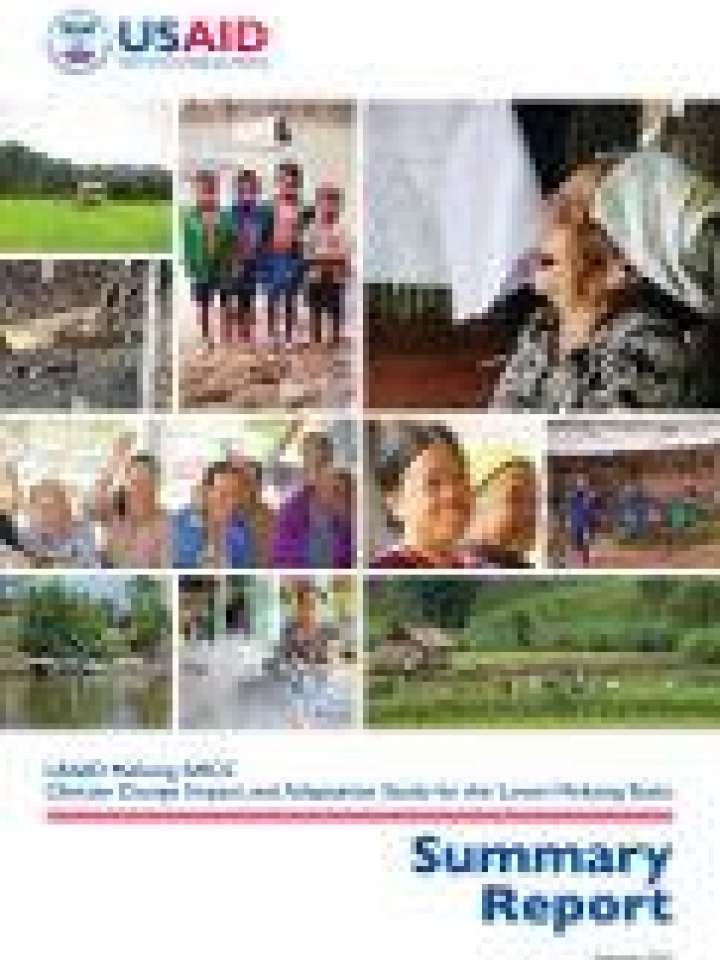Climate change impact and adaptation study for the Lower Mekong Basin: Summary report
This is a study of climate change and water resources, food security, livelihoods, and biodiversity in the Lower Mekong Basin (LMB), including Lao PDR, Cambodia, Thailand, and Vietnam. It lays the foundation for the whole USAID Mekong Adaptation and Resilience to Climate Change (USAID Mekong ARCC) project by providing the scientific evidence base for identifying highly vulnerable and valuable agricultural and natural systems assets in the LMB.
In response to the projected impacts, it defines broad adaptation options and priorities, and guides the selection of pilot sites for enhancing existing adaptation effort and for demonstrating and testing new adaptation strategies. The study focuses on five critical livelihood sectors: agriculture, capture fisheries and aquaculture, livestock, natural systems, and rural infrastructure and health.
The study recognizes that most families in the region are small-scale farmers who depend on wild plants and animals as much as they do domesticated breeds. Their farming activities are interwoven with surrounding natural systems and are shaped by the seasons and by variable and changing climate.
Together with the six sector analysis reports, this Summary Report serve as important references and contribute substantively to the analysis and results of the Climate Change Impact and Adaptation Study for the Lower Mekong Basin released in 2014.
Explore further
